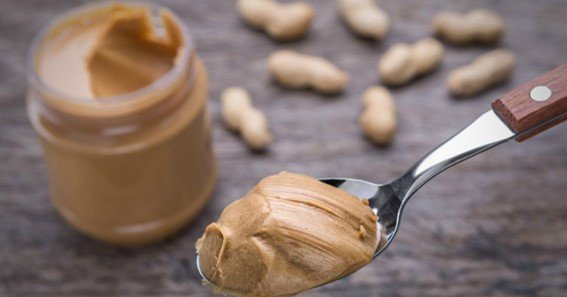Peanut butter is a popular snack spread, loved for its creamy texture and nutritional benefits. But is there vitamin A in peanut butter? While peanut butter is packed with essential nutrients like protein and healthy fats, it’s not typically known as a source of vitamin A. In this article, we’ll explore the vitamin A content in peanut butter, its overall nutritional profile, and whether it provides any of the health benefits associated with vitamin A.
Is There Vitamin A in Peanut Butter?
The short answer is that peanut butter does not contain significant amounts of vitamin A. Unlike animal products and some types of fortified foods, peanut butter isn’t considered a source of vitamin A. Most peanut butter brands do not list vitamin A in their nutrition facts, as its levels are minimal to non-existent. Does peanut butter contain vitamin A? Technically, there may be trace amounts, but they are not enough to contribute meaningfully to daily intake.
Nutritional Value of Peanut Butter
Though peanut butter as a vitamin A source is not significant, it provides various other nutrients. Here’s a quick look at the primary nutrients in peanut butter:
- Protein: Peanut butter is rich in protein, which supports muscle repair and growth.
- Healthy Fats: It contains monounsaturated and polyunsaturated fats, which are good for heart health.
- Fiber: Peanut butter has a decent amount of fiber, aiding in digestion.
- Vitamins and Minerals: While low in vitamin A, peanut butter does offer other nutrients like vitamin E, magnesium, and potassium.
These peanut butter nutrition facts make it a valuable addition to a balanced diet, despite the absence of vitamin A.
Health Benefits of Peanut Butter
Even though health benefits of vitamin A in peanut butter are minimal due to its low vitamin A content, peanut butter still offers multiple health benefits:
- Heart Health: The unsaturated fats in peanut butter support heart health by improving cholesterol levels.
- Energy Boost: High in calories and protein, peanut butter is an energy-dense snack.
- Supports Bone Health: Magnesium and phosphorus in peanut butter contribute to strong bones.
- Antioxidant Properties: While lacking vitamin A, peanut butter does contain vitamin E, an antioxidant that protects cells from damage.
Peanut Butter and Vitamin Content
If you’re looking for fat-soluble vitamins in peanut butter, vitamin E is the main one present. Vitamins in peanut butter mainly include vitamin E, along with small amounts of B vitamins. Though it lacks vitamin A, peanut butter is still a nutritious option, especially for those looking for a plant-based source of protein and healthy fats.
FAQ
1. Is there vitamin A in peanut butter at all?
There is little to no vitamin A content in peanut butter, making it an insignificant source of this nutrient.
2. Can peanut butter provide other fat-soluble vitamins?
Yes, peanut butter contains vitamin E, a fat-soluble antioxidant, though it lacks vitamin A.
3. What nutrients are in peanut butter besides vitamin A?
Peanut butter is rich in protein, healthy fats, fiber, and vitamin E, as well as minerals like magnesium and potassium.
4. Is peanut butter a good substitute for foods with vitamin A?
No, peanut butter is not a substitute for vitamin A-rich foods. For vitamin A, try carrots, spinach, or liver instead.
5. Does peanut butter contain vitamins essential for health?
Yes, vitamins in peanut butter include vitamin E, B vitamins, and trace minerals, contributing to various health benefits.
Conclusion
Is there vitamin A in peanut butter? While peanut butter has many nutritional benefits, vitamin A is not one of them. Peanut butter and vitamin content are still impressive, offering protein, healthy fats, vitamin E, and essential minerals. If you’re specifically looking for vitamin A sources, opt for foods like leafy greens, sweet potatoes, or liver. Peanut butter, however, remains a great choice for energy, heart health, and general nutrition.










